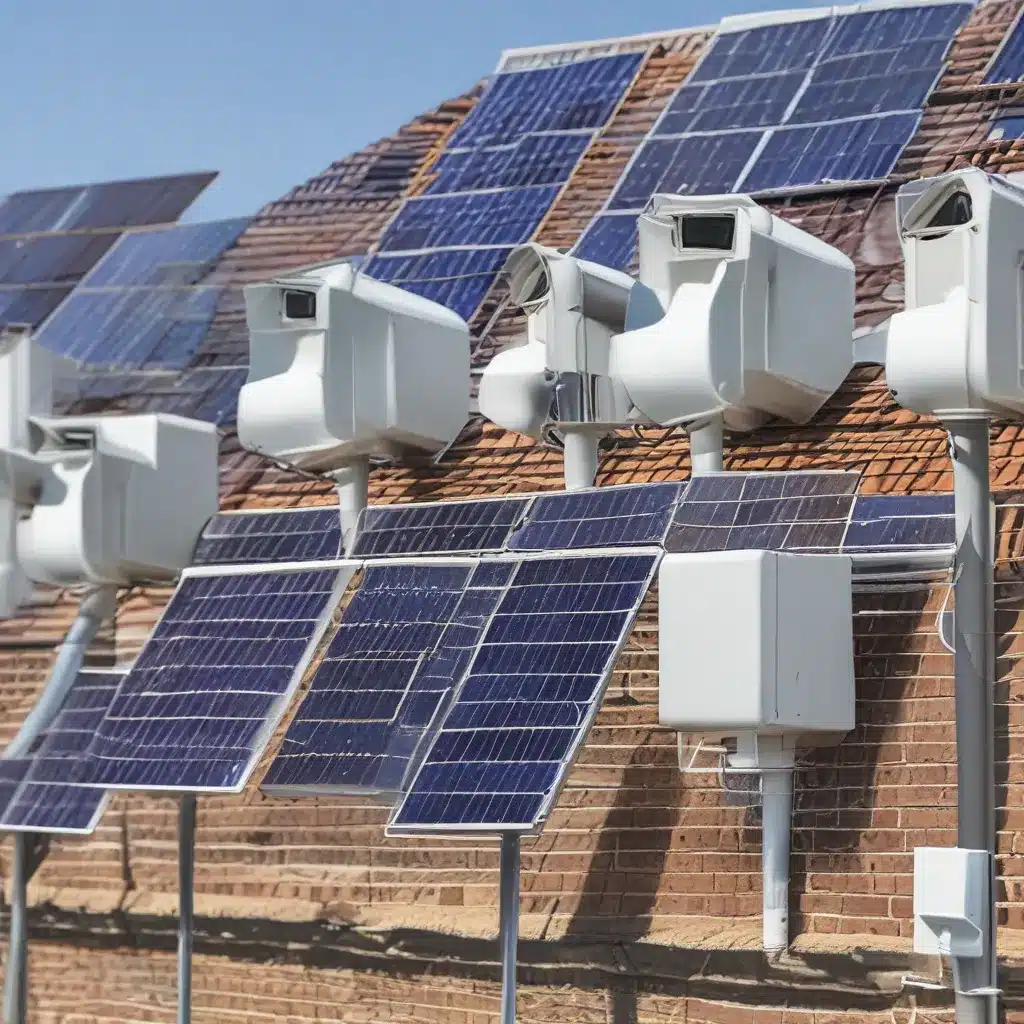
The Importance of Solar Monitoring
As a proud solar energy solutions company, we know that investing in solar panels is an exciting step towards a more sustainable future. But did you know that keeping a close eye on your solar system’s performance is just as important as the installation itself?
You see, your solar panels are like the hardworking superheroes of your home’s energy production – they’re silently generating clean, renewable electricity day in and day out. But just like any superheroes, they need a little bit of monitoring to make sure they’re performing at their best. That’s where solar monitoring systems come into play.
Understanding Solar Monitoring Systems
A solar monitoring system is essentially the sidekick to your solar panels. It’s a device that’s connected to your inverter, the component that converts the sun’s energy into usable electricity for your home. This nifty little gadget keeps track of how much energy your solar panels are producing, and it gives you access to all sorts of valuable data about your system’s performance.
With a solar monitoring system, you can log in to a personalized website or mobile app and check on your system’s output whenever you want. You can see how much power you’re generating in real-time, as well as historical data on your energy production over time. Some advanced systems even allow you to monitor the performance of individual solar panels, so you can quickly identify if one of them is underperforming.
The Benefits of Monitoring Your Solar System
You might be wondering, “Why do I need to monitor my solar system? Isn’t it just going to keep working automatically?” Well, my friend, that’s where you’d be mistaken. While solar panels are pretty darn reliable, they can still experience hiccups and issues that you’ll want to address. That’s where solar monitoring comes in handy.
Catching Problems Early
One of the biggest benefits of solar monitoring is the ability to catch problems early. If your system’s output suddenly drops, your monitoring system will alert you to that dip in performance. That way, you can investigate the issue and get it resolved before it turns into a bigger, more expensive problem.
As the Solar Rights Alliance points out, your installer may not always notice smaller issues with your system, since they’re likely monitoring hundreds of other solar installations. But when it’s your own system, you’ll be the first to know if something’s not quite right.
Maximizing Efficiency
Solar monitoring also helps you keep your system operating at peak efficiency. By tracking your energy production and comparing it to factors like weather conditions, you can identify ways to optimize your system’s performance. Maybe there’s a pesky tree branch that’s casting a shadow on one of your panels, or perhaps your system needs a quick cleaning to remove any built-up dust or debris.
As the experts at Intermountain Wind & Solar say, regular monitoring can help you increase your solar energy production by up to 14% – that’s a pretty significant boost in savings!
Maintaining Warranties and Insurance
Finally, solar monitoring can play a crucial role in maintaining your system’s warranties and insurance coverage. Most solar equipment comes with some kind of warranty, and the manufacturer or installer will want to see that you’re taking good care of your system. By regularly monitoring your system’s performance and keeping records of any issues or maintenance, you can ensure that you’re able to take full advantage of those warranties if something does go wrong.
Choosing the Right Solar Monitoring System
Now that you know the importance of solar monitoring, the next step is to figure out which system is right for you. There are a few different options to consider:
Manufacturer-Provided Monitoring
Many solar panel and inverter manufacturers offer their own monitoring systems as part of the package. These are often the most basic options, providing you with information on your overall system performance. They’re a good starting point, but they may not offer the level of detail or customization that some homeowners are looking for.
Third-Party Monitoring Systems
If you want a more robust monitoring solution, you might want to look into third-party options. These are standalone systems that can track the performance of your entire solar array, as well as individual panels or modules. They often come with more advanced features like real-time alerts, weather data integration, and detailed energy usage and production reports.
Integrated Home Energy Monitoring
Another option is to go with a home energy monitoring system that tracks not just your solar production, but your overall energy consumption as well. As KC Solar points out, these systems can give you a comprehensive view of your home’s energy use and help you identify ways to improve efficiency, with or without solar panels.
When it comes to choosing a monitoring system, there’s no one-size-fits-all solution. It really depends on your needs, budget, and the specific details of your solar installation. Your best bet is to work closely with your solar installer to find the monitoring system that’s the perfect fit for your home.
Keeping a Watchful Eye on Your Solar Superheroes
Investing in solar energy is an amazing way to take control of your power and reduce your carbon footprint. But to truly get the most out of your solar system, you need to be an engaged and proactive energy superhero. That’s where solar monitoring comes in – it’s the sidekick that helps you keep a watchful eye on your system’s performance and ensure it’s always operating at its best.
So, don’t let your solar panels go unmonitored! Embrace the power of solar monitoring and start maximizing the energy-saving benefits of your clean, renewable power source. Your utility bills (and the planet) will thank you!


